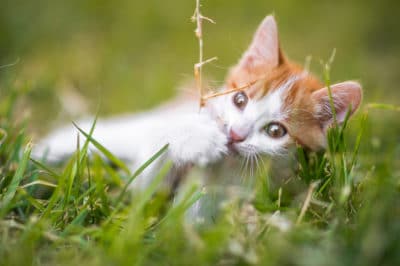Types of Asparagus and Toxicity
There are many species of the asparagus plant, and two which are commonly grown are the vegetable asparagus (Asparagus officinalis) and the houseplant and ornamental garden plant, the asparagus fern (Asparagus densiflorus), also called emerald fern, sprengeri fern, plumose, and lace fern. While these two plants are both in the same genus and look a bit alike, they are distinct species, and asparagus ferns do not produce the edible shoots of their vegetable cousin.
The foliage and berries of both types of asparagus plants are mildly toxic and should not be eaten. Cats, dogs, and children are sometimes attracted to eating the berries, and this can produce intestinal upset, vomiting, and diarrhea. Touching the foliage of either type of asparagus causes a skin rash in some people and animals.
Preventing Asparagus Toxicity
Raw asparagus shoots contain substances mildly toxic to humans. Reactions are almost always mild allergic reactions and not generally serious. To prevent any toxic reaction, harvest shoots when they are between 6 and 10 inches (15 to 25cm) tall and the buds are still tightly closed. Wash the shoots in running, cold water to clean them of any dirt, and then steam, stir-fry, or grill them for a few minutes before eating to remove all toxins.
A toxic reaction to asparagus is more common in people who are frequently exposed to the plant or shoots and those who have a known asparagus allergy.
If you are concerned about a person exposed to a poison, call:
- The American Association of Poison Control Centers (800) 222-1222.
For information and help for an animal poisoning contact:
- The ASPCE Animal Poison Control Center (800)426-4435. (A fee may be charged for assistance).
To protect cats, other pets, and small children from ingesting asparagus berries, tend the plants, keeping berries trimmed off at the bottom of stalks and keep pets and children away from the plants altogether if possible.
